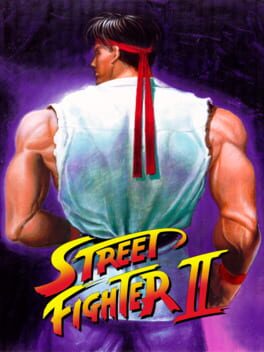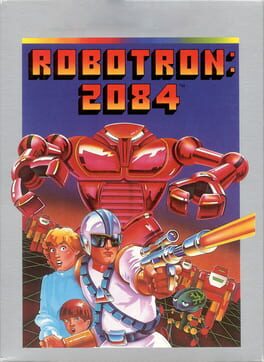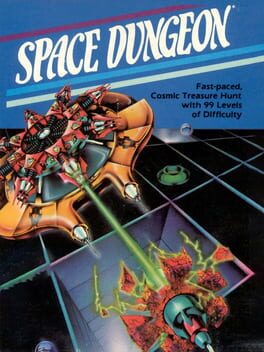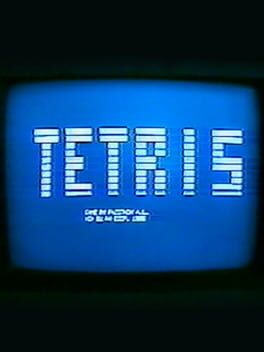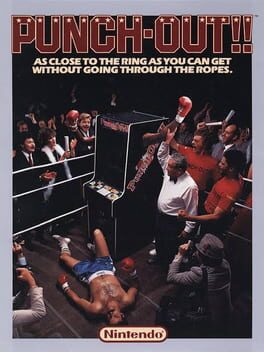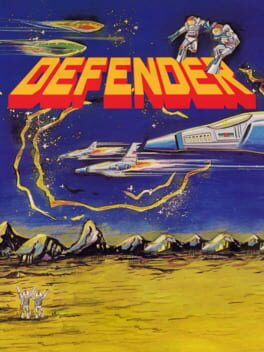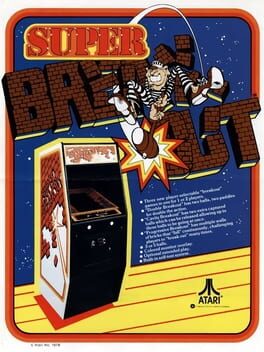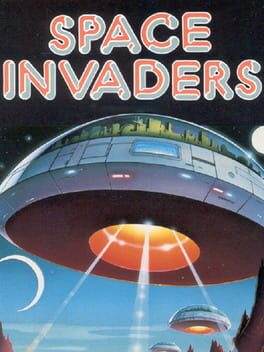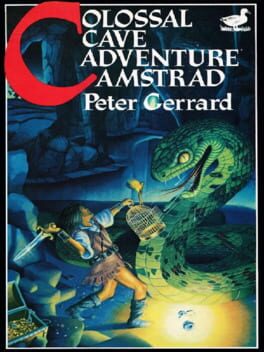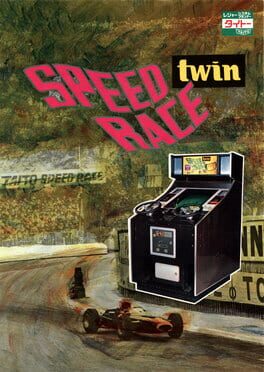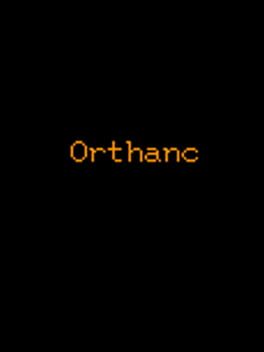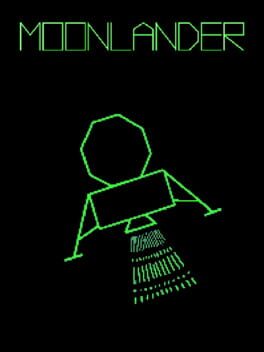DeviousJinjo
1993
Doom is bountiful beyond all reason. It is truly the gift that never stops giving. Its base campaign is enough as it is, and the pursuit of its mastery was a crucial element in speedrunning's infancy, but with WADs it can simply never end. Doom harbors a level editor robust enough that it has never stopped seeing heavy use. It's not even just a level editor, that's what Wolfenstein has. Doom has full-on mod support, something that was totally unheard of. Equally unheard of is deathmatch, an ONLINE PVP multiplayer mode the likes of which no shooter had seen before.
It's a fast, frenetic, inventive embarrassment of riches, the likes of which we never truly deserved.
It's a fast, frenetic, inventive embarrassment of riches, the likes of which we never truly deserved.
1991
If you've ever wondered what it takes for a game to become a sport, the answer you were looking for was Street Fighter II.
Video games had been competitive since they day they were born. Literally Space War is a one-on-one PVP multiplayer game. Pong is based on (stolen from) the Magnavox Odyssey's Table Tennis, which is based directly on an existing competitive sport. Arcades were leaderboard galleries, and almost every game in them revolved around the comparing of scores, and yet Street Fighter II was able to change everything.
Before Street Fighter II, if it was deep it was about scoremongering, and if it was actually about two people in direct, contemporaneous competition, it was a shallow thing that one or both contestants could master in no time at all.
Street Fighter II is a game that you and a friend could play every day for months on end and still develop new and interesting techniques. It was something you could study, and your rivals would constantly redefine what mastery means. Even with its many rereleases shifting its meta and smoothing over its cracks, the original release of SF2 is solid enough to remain unbroken, even in current year. It is a genre's bedrock, even if it's not so terribly exciting anymore in this world so populated by its progeny.
Video games had been competitive since they day they were born. Literally Space War is a one-on-one PVP multiplayer game. Pong is based on (stolen from) the Magnavox Odyssey's Table Tennis, which is based directly on an existing competitive sport. Arcades were leaderboard galleries, and almost every game in them revolved around the comparing of scores, and yet Street Fighter II was able to change everything.
Before Street Fighter II, if it was deep it was about scoremongering, and if it was actually about two people in direct, contemporaneous competition, it was a shallow thing that one or both contestants could master in no time at all.
Street Fighter II is a game that you and a friend could play every day for months on end and still develop new and interesting techniques. It was something you could study, and your rivals would constantly redefine what mastery means. Even with its many rereleases shifting its meta and smoothing over its cracks, the original release of SF2 is solid enough to remain unbroken, even in current year. It is a genre's bedrock, even if it's not so terribly exciting anymore in this world so populated by its progeny.
1982
I grew up playing Smash TV on, of all things, my PS1 (via Arcade Party Pak) and little did I know that almost everything I liked about it was already on full display in the arcade a decade before I was born.
Robotron is overwhelmingly brutal. I cannot imagine it was actually popular in the arcade, when it is so easy to put in that first quarter, INSTANTLY die before you even comprehend what is happening, and judge the second quarter to be an unwise investment. Getting good at Robotron is a daunting endeavor, even without the literal cost.
With the luxury of free-play in a modern environment though, it's easy to call Robotron the most frantically addicting game of its time.
Robotron is overwhelmingly brutal. I cannot imagine it was actually popular in the arcade, when it is so easy to put in that first quarter, INSTANTLY die before you even comprehend what is happening, and judge the second quarter to be an unwise investment. Getting good at Robotron is a daunting endeavor, even without the literal cost.
With the luxury of free-play in a modern environment though, it's easy to call Robotron the most frantically addicting game of its time.
1982
1985
Inventor of the real-time score-attack puzzle game (as far as I know) and when accounting for its million quadrillion versions, probably still its king. To be honest, that's not something I can confirm. I respect these plenty, but on the cosmic scale of all video games, this is unavoidably the genre by which I am the least compelled. Is Tetris better than Puyo Puyo? I have no idea. What I do know is that Tetris matters, and that it's good.
1984
While it's far from my personal favorite Nintendo franchise, I consider Punch-Out to be the first of the greats. Donkey Kong and Mario's first outings in the arcades are serviceable, and the Game and Watch games are what they are, and Duck Hunt is a fine enough light gun game, but Punch-Out feels like the first quintessential work of true Nintendo polish and vision. It looks great for the time, and as a well-considered, elaborate, one-on-one boss-rush fighting game, it was something new and visionary. Super Mario Bros might still be a year away, but The Real Nintendo starts right here.
The thing is uhhh... you've played the NES one right? You know that these guys have like, really specific tells and gimmicks that you kind of have to figure out through trial and error or from somebody telling you? Yeah that's a pretty dirty thing to tie to a quarter-munching arcade machine. Good thing none of that's really here yet! I guess?
The thing is uhhh... you've played the NES one right? You know that these guys have like, really specific tells and gimmicks that you kind of have to figure out through trial and error or from somebody telling you? Yeah that's a pretty dirty thing to tie to a quarter-munching arcade machine. Good thing none of that's really here yet! I guess?
1981
1978
Breakout was good, but the three game modes added in its successor are all meaningful improvements. They may only be bells and whistles tied onto Steve Wozniak's technical miracle, but it's the bells and whistles that finally make it sing. Even the Atari home version is good, and EVERYTHING sucks on an Atari console!
1978
While the PLATO RPGs of its time seek to replicate thr systems of Dungeons and Dragons, Colossal Cave Adventure seeks to preserve its humanity. It is a proto-Choose-Your-Own-Adventure book. It is a DnD one-shot wherein the DM is infinitely patient, but barely speaks your language. It is one of the most important video games ever made. Beside the adventure sits a parallel game... one of communication. Accept that relaying your intentions to this robot can be a fun challenge in itself, and find yourself enjoying two games at once.
Colossal Cave Adventure is, at least in my opinion, the first game that is actually about exploring a place. Not just mapping out a level, but searching its crannies and understanding its inner workings. As you can imagine, some of the puzzles in Colossal Cave Adventure are stupid. There are a great number of passageways that only SOMETIMES randomly work, and the "solution" is literally just to try them over and over. In this original text adventure, that means typing a command over and over, not just holding down a button to walk in a direction.
Despite the clunk, this is an admirable first outing with many interesting little twists and turns, and if a slow-paced, dry-witty, more-exploratory, historically-essential version of Kirby Superstar's Great Cave Offensive sounds interesting to you, I'd say you'll probably have a good time!
But I'd also say that you should definitely play the 2023 graphical remake Colossal Cave over the original though, because we live in a society.
Colossal Cave Adventure is, at least in my opinion, the first game that is actually about exploring a place. Not just mapping out a level, but searching its crannies and understanding its inner workings. As you can imagine, some of the puzzles in Colossal Cave Adventure are stupid. There are a great number of passageways that only SOMETIMES randomly work, and the "solution" is literally just to try them over and over. In this original text adventure, that means typing a command over and over, not just holding down a button to walk in a direction.
Despite the clunk, this is an admirable first outing with many interesting little twists and turns, and if a slow-paced, dry-witty, more-exploratory, historically-essential version of Kirby Superstar's Great Cave Offensive sounds interesting to you, I'd say you'll probably have a good time!
But I'd also say that you should definitely play the 2023 graphical remake Colossal Cave over the original though, because we live in a society.
1976
1975
1974
1971
Emerged from the primordial soup as a timeless being. It has been improved on in countless ways, but was immortal from its first day. As one of the only truly good, explicitly educational games to this day, and as something that was AT LEAST ten years ahead of its time, even the original incarnation of Oregon Trail deserves to be forever enshrined as a true cultural achievement.
Oregon Trail, like Space War!, the Cathode Ray Tube Amusement Device, and a few others, stands as a proof of concept for all of video games. Oregon Trail is not just the computerization of an existing board game or table-sport. It is an original game that is far removed from any electronic predecessors, and like Space War!, it's actually good.
Oregon Trail, like Space War!, the Cathode Ray Tube Amusement Device, and a few others, stands as a proof of concept for all of video games. Oregon Trail is not just the computerization of an existing board game or table-sport. It is an original game that is far removed from any electronic predecessors, and like Space War!, it's actually good.
1973
Lunar Lander, now with fun and lights!
With the addition vector graphics and real-time falling, Moonlander becomes the critical link between Space War! and Asteroids. It is a game about precise and intricate movement of a visible, an onscreen "character" that is not just a paddle, and isn't just grid-based maze navigation or locked to the footage of a film reel like 1954's Auto Test.
Moonlander is an utterly nonviolent game that isn't -really- about achieving a high score, and features no opponent outside of that scoreboard. It is, first and foremost, a game about the raw satisfaction of successfully manipulating physics.
By modern standards, any version of Lunar Lander feels absolutely ponderous. It feels like the bare skeleton of a video game, presented in slow motion. Nonetheless, Moonlander is essentially the first important, substantive remake in gaming history, and is a worthy member of video game's founding pantheon.
With the addition vector graphics and real-time falling, Moonlander becomes the critical link between Space War! and Asteroids. It is a game about precise and intricate movement of a visible, an onscreen "character" that is not just a paddle, and isn't just grid-based maze navigation or locked to the footage of a film reel like 1954's Auto Test.
Moonlander is an utterly nonviolent game that isn't -really- about achieving a high score, and features no opponent outside of that scoreboard. It is, first and foremost, a game about the raw satisfaction of successfully manipulating physics.
By modern standards, any version of Lunar Lander feels absolutely ponderous. It feels like the bare skeleton of a video game, presented in slow motion. Nonetheless, Moonlander is essentially the first important, substantive remake in gaming history, and is a worthy member of video game's founding pantheon.

